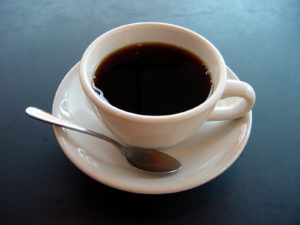 Some good news for coffee drinkers - daily consumption of coffee is linked to a lower risk of acute kidney injury.
Some good news for coffee drinkers - daily consumption of coffee is linked to a lower risk of acute kidney injury.
John Hopkins Medicine researchers found that daily consumption of coffee (at least 1 cup of coffee per day) lowered the risk of acute kidney injury (AKI) by 15%. But those who drank 2 to 3 cups of coffee each day had a 22% to 23% lower risk (compared to non-drinkers)
The researchers pointed out in their paper that the risk of chronic kidney disease and other diseases is also lower in daily coffee drinkers.
"Habitual coffee consumption is associated with the prevention of chronic and degenerative diseases, including type 2 diabetes, cardiovascular disease, and liver disease.
ARIC, a large population study of 14,207 participants aged 45 to 64 years, revealed that higher self-reported daily coffee consumption was associated with a lower risk of incident chronic kidney disease after adjustments were made for demographic, clinical, and dietary factors. Thus, habitual coffee consumption has a strong potential for reducing the risk of progressive kidney disease."
From Science Daily: Coffee consumption link to reduced risk of acute kidney injury, study finds
If you need another reason to start the day drinking a cup of joe, a recent study by Johns Hopkins Medicine researchers has revealed that consuming at least one cup of coffee a day may reduce the risk of acute kidney injury (AKI) when compared to those who do not drink coffee. ...continue reading "Coffee and the Kidneys"

 A possible problem with running marathons is short term kidney injury in the two days right after the race. A study of 22 runners in the 2015 Hartford (Connecticut) Marathon found that most of the runners temporarily developed acute kidney injury (AKI) directly after the race. The study main author Chirag R. Parikh, MD, PhD said: "The kidney responds to the physical stress of marathon running as if it's injured, in a way that's similar to what happens in hospitalized patients when the kidney is affected by medical and surgical complications".
A possible problem with running marathons is short term kidney injury in the two days right after the race. A study of 22 runners in the 2015 Hartford (Connecticut) Marathon found that most of the runners temporarily developed acute kidney injury (AKI) directly after the race. The study main author Chirag R. Parikh, MD, PhD said: "The kidney responds to the physical stress of marathon running as if it's injured, in a way that's similar to what happens in hospitalized patients when the kidney is affected by medical and surgical complications".